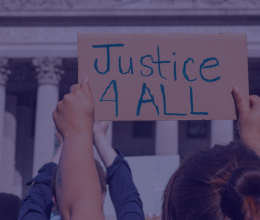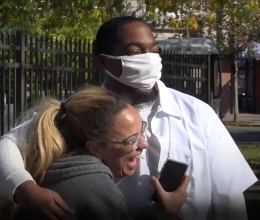
Lawsuit challenges practice widely condemned as harmful to long-term mental health and public safety
NEW BRUNSWICK – The ACLU-NJ filed suit against Middlesex County, (PDF) challenging the use of solitary confinement for a pre-trial detainee who is mentally ill. The filing asks the court to order county jail officials to move the detainee from prolonged isolation, where he has been housed for at least 23 hours per day without opportunities for interaction with other people, and into a less restrictive environment. A hearing is scheduled for 10:30 a.m. on Monday, July 7, 2014, before Middlesex County Assignment Judge Travis L. Francis.
The ACLU-NJ represents P.D., a pretrial detainee with mental illness who has been at the jail since October 2013, when he was charged with a crime and unable to make bail. Because of disciplinary infractions, he has been held in solitary confinement for more than four months. Since his transfer to “Lower-C Pod,” as the solitary unit is called, P.D. has been let out of his cell for only one hour per day, five days per week. In that hour he either showers or paces in a ten-foot-by-ten-foot chain-linked cage in the center of his housing unit. He eats meals and receives medication through a slot in the door, never going outside or interacting with other prisoners.
“It’s unconstitutional to subject anyone to conditions of confinement that will cause long-term damage to his or her health. This risk is only increased when people with existing mental health conditions, like our client, are forced to endure prolonged isolation. These policies not only intensify a prisoner’s own frailties, but also create conditions that increase risks to public safety,” said Alexander Shalom, ACLU-NJ Senior Staff Attorney.
Courts throughout the country have held that exposing vulnerable populations, like the mentally ill, to solitary confinement constitutes cruel and unusual punishment. One court described the practice as “the mental equivalent of putting an asthmatic in a place with little air to breathe.”
The ACLU-NJ’s lawsuit asks the court to find that the jail’s practice violates the state constitution. Prison officials from around the country acknowledge the need for its reduction or even outright elimination of solitary confinement, particularly when applied to prisoners who are mentally ill. Indeed, prison officials and legislators recognize the cruelty in the overuse of solitary confinement as well as its risks to public safety by returning prisoners to our communities with more acute mental health problems than they had before entering jail.
“Mental health professionals agree that subjecting someone like P.D. to well more than one hundred days in isolation can do serious, long-term damage to his mental health,” said Shalom. “To do that to anyone is cruel; to do it to a mentally ill and cognitively impaired person who is presumed innocent is inhuman. Given that solitary confinement increases prisoners’ feelings of rage, it is also incredibly risky.”
The lawsuit, captioned P.D. v. Middlesex County, was filed June 24, 2014, in Middlesex County Superior Court.





